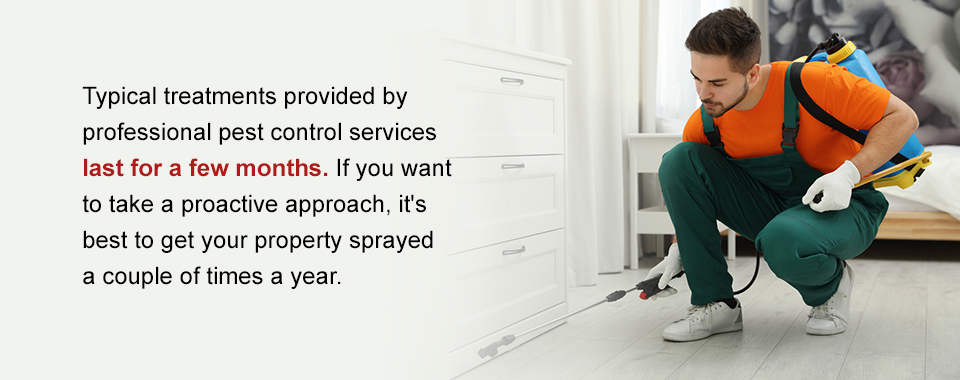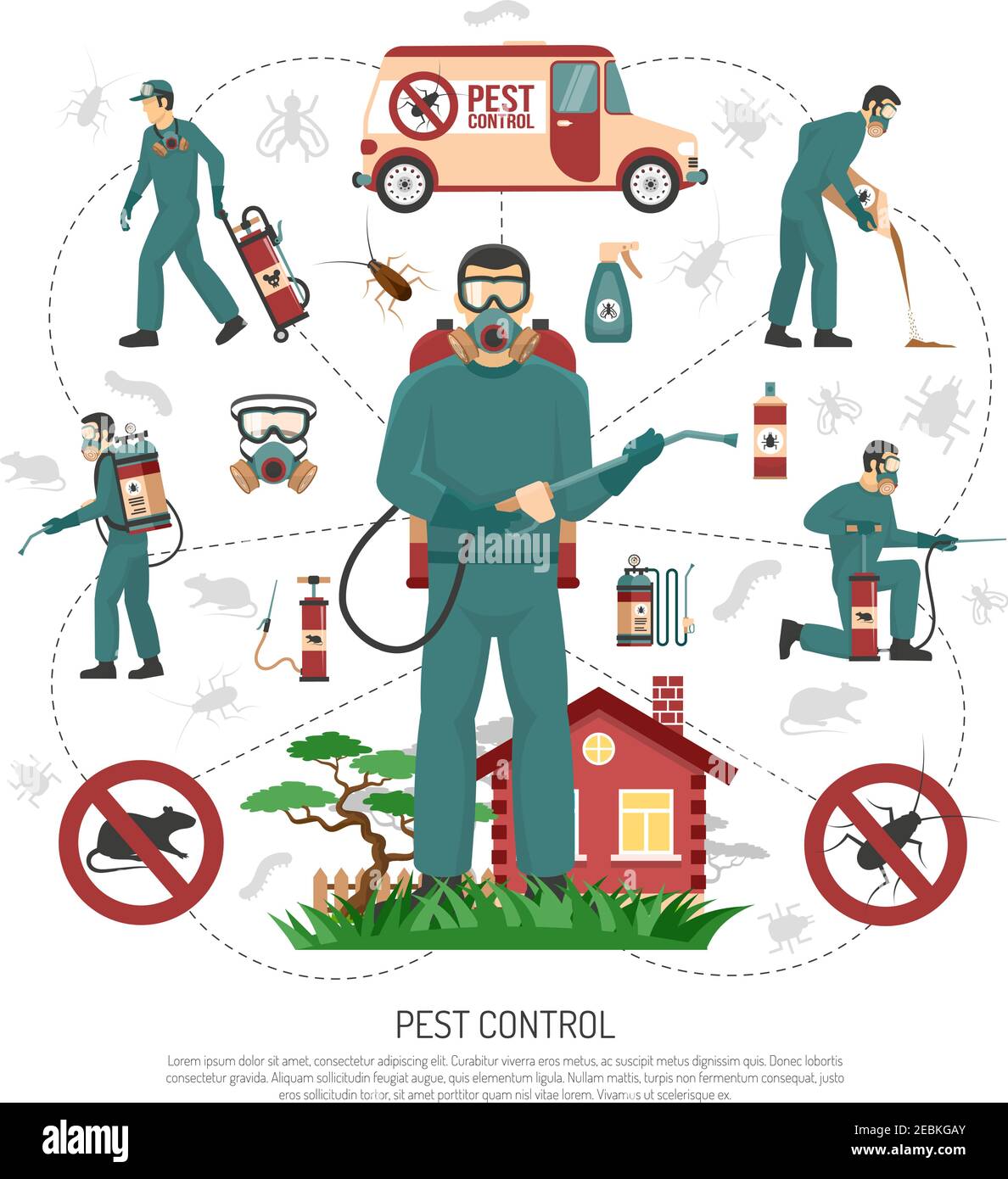Comprehensive Pest Control Clovis Solutions for each Requirement
Comprehending the Various Strategies to Parasite Control: A Comprehensive Guide

All-natural Bug Control Approaches
Using eco-friendly methods such as friend growing and biological pest control is necessary for properly handling bugs in agricultural settings. Buddy growing entails expanding various crops in closeness to prevent bugs, improve nutrient uptake, and improve total plant health and wellness.
Biological pest control entails presenting natural predators or pathogens to regulate pest populations. Ladybugs, for circumstances, prey on aphids, regulating their numbers without the requirement for chemical pesticides. Another instance is using Bacillus thuringiensis (Bt), a bacterium that targets specific insect pests while being harmless to people, animals, and helpful insects.
These environment-friendly techniques not only minimize the dependence on artificial chemicals yet likewise help preserve biodiversity and soil health. By integrating all-natural insect control strategies into farming practices, farmers can accomplish lasting pest administration while decreasing negative influence on the environment.

Chemical Pest Control Solutions
Along with natural insect control techniques, the application of chemical insect control options plays a considerable role in properly handling pest populaces in agricultural settings. Chemical pest control options are formulated to target details insects that might cause considerable damage to crops. These services often have artificial pesticides that are made to eradicate bugs promptly and successfully.
Among the vital benefits of chemical parasite control remedies is their performance in regulating bug problems on a huge range. Farmers can apply these services utilizing various methods such as splashing, airing out, or seed treatment to shield their plants from hazardous bugs, weeds, and diseases. Additionally, chemical pest control solutions are relatively easy to apply and can provide rapid outcomes, aiding farmers guard their returns and minimize financial losses.
Nevertheless, it is necessary to utilize chemical pest control remedies deliberately to lessen prospective negative effect on the atmosphere, non-target organisms, and human health. Correct application methods, adherence to security guidelines, and regular monitoring are important to guarantee the responsible usage of chemical parasite control remedies in agricultural techniques.
Organic Parasite Control Approaches
Biological pest control approaches leverage all-natural predators or pathogens to manage bug populaces in farming setups successfully. This approach provides a green and sustainable solution to pest monitoring, minimizing the reliance on artificial chemicals and reducing damage to the environment. One usual organic control strategy is the introduction of all-natural adversaries, such as ladybugs or parasitical wasps, to target certain bugs. These killers eat the pests, assisting to regulate their populaces naturally - pest control clovis.
Another organic control technique involves using pathogens like microorganisms, viruses, or fungi to infect and eliminate bugs. In general, organic insect control methods offer a lasting and targeted solution to pest management in farming.
Integrated Insect Management (IPM)
Integrated Parasite Management (IPM) is a comprehensive strategy that integrates numerous insect control techniques to properly handle and minimize pest populaces in farming systems. IPM focuses on lasting prevention of parasites with a combination of biological, social, physical, and chemical control approaches. By integrating these different strategies, IPM aims to decrease dependence on chemical pesticides, minimize ecological impact, and promote sustainable parasite management practices.
One secret facet of IPM is using organic controls such as natural predators, bloodsuckers, and virus to control pest populaces. This method uses the power of nature to maintain an equilibrium in between insects and their all-natural enemies without triggering injury to the environment.
In addition, IPM entails cultural practices like crop cleanliness, habitat, and rotation adjustment to develop negative look what i found problems for parasites and disrupt their life cycles. Physical controls such as mulches, barriers, and catches are also utilized to avoid insect invasions.
Physical and mechanical Parasite Control Strategies
Utilizing non-chemical approaches, such as physical and mechanical bug control methods, is an essential facet of comprehensive parasite monitoring methods, developing upon the foundation of Integrated Parasite Administration's holistic strategy. Mechanical bug control involves using physical obstacles or traps to protect against bugs from accessing and damaging plants or structures. This approach can include techniques like setting up screens on home windows, using row covers in farming, or utilizing sticky catches to capture insects.
Physical parasite control methods, on the various other hand, focus on straight getting rid of pests via physical ways. As an example, using warmth treatments to eradicate bed pests or vacuuming up bugs like spiders or ants can be efficient means to handle infestations without making use of chemicals. By including these mechanical and physical parasite control methods right into an Integrated Bug Management strategy, specialists and individuals can lower reliance on chemicals while still successfully managing pest populations and decreasing damages.
Conclusion

In addition to natural parasite control techniques, the usage of chemical parasite control options plays a considerable role in properly handling pest populaces in click here to find out more agricultural environments.One of the crucial advantages of chemical parasite control services is their performance why not check here in managing pest problems on a large range.Integrated Bug Management (IPM) is a thorough method that combines different pest control strategies to properly handle and minimize pest populaces in agricultural systems.Making use of non-chemical techniques, such as physical and mechanical pest control methods, is a critical aspect of comprehensive bug management methods, building upon the foundation of Integrated Bug Monitoring's holistic technique. By including these mechanical and physical bug control strategies into an Integrated Insect Monitoring strategy, experts and people can reduce reliance on pesticides while still successfully lessening and taking care of pest populaces damages.